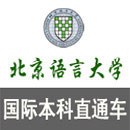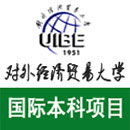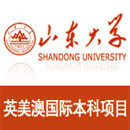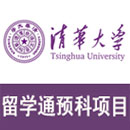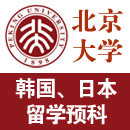MDIS,本地最大的私立学校,即将于明年三月搬迁至女皇镇公共游泳池附近的新校园里。这所新的校园拥有100间教室,6间化学实验室和电脑实验室,还有专为大众传媒学生所提供的广播练习设备,另外还有体育馆、篮球场和网球场等体育设施。据悉,MDIS另外的一间校园也将于2007年完工,到时候,两间校园加上坐落于樟宜路上的MDIS总部将可以容纳近15000名学生一起学习。
MDIS作为新加坡资历最老的私立学校之一,于1956就开始了它教育的使命。从初期的小学校,发展成为现在拥有雄厚的师资力量,优越的教学条件的大型私立学院。它在新加坡拥有多个分支机构。MDIS的宗旨是为所有未来及现任的经理人才提供他们所需要的专业技能与知识,让他们在更具竞争性的商业环境中一展所长。因此,MDIS一直都强调并确保会员及学员在表现和学习上保持高超水准。40多年的丰富运作经验使MDIS成为新加坡顶尖的专业学院之一。
EDB的高级官员Ko Kheng Hwa也说:“MDIS的这一举措,将会推动新加坡国际校园计划的进程。”
MDIS管理委员会的秘书长Mr R. Theyvendran也表示学院会一直紧紧跟随新加坡政府经济发展政策的脚步。他说:“当生命科学成为一个新的经济增长领域的时候,我们就开始提供了生物化学学科的课程,尽管花费不菲,但我们还是愿意设立这两个价值2百万新元的实验室。”
The Straits Time 的原文
S''pore to get bigger slice of education pie
By Sandra Davie
SINGAPORE stands to capture a bigger share of the US$2.2 trillion (S$3.8 trillion) world education market when the Management Development Institute of Singapore (MDIS) expands to admit up to 10,000 foreign and 5,000 local students.
MDIS, one of the larger private institutions here, runs part-time diploma and degree courses for working adults here and has a fast-growing foreign enrolment.
The Economic Development Board (EDB), which aims to draw 150,000 foreign students here by 2012, helped MDIS to lease the 3ha former Queenstown campus of the Institute of Technical Education for its proposed campus.
The institute hopes to move into its $30 million UniCampus, near the Queenstown Swimming Complex, by March next year. It will have 100 classrooms, six biomedical laboratories, computer laboratories, a broadcast studio for mass communication students and sporting facilities, such as a gym, basketball court and tennis courts.
But there will be no dormitories. It plans to set up an office to arrange accommodation for students in Housing Board flats in Queenstown.
A separate city campus should be ready by 2007. The two campuses and the MDIS headquarters in Changi Road will be able to take in 15,000 students altogether.
MDIS already offers 15 degree courses in business, mass communications, biomedical science and information technology, with partners which include Bradford University in England, Oklahoma City University in the United States and Australian university Edith Cowan. Soon, it will offer 21, including nursing and engineering, and develop its own proprietary courseware.
EDB managing director Ko Kheng Hwa said: ''MDIS''s initiatives will be a boost to the vibrancy of Singapore''s Global Schoolhouse programme.''
Singapore aims to boost education''s contribution to its economy to 5 per cent by 2012, up from 1.9 per cent or $3 billion.
The courses at the institute won''t cost a bomb: about $20,000 for three years'' tuition; $30,000 for biomedical students; and a few thousand more for foreigners.
Singapore''s three universities charge about $18,000 for a three-year general degree programme. The private University of New South Wales, which will open its doors here in 2007, will charge about A$60,000 (S$74,700) over three years.
MDIS, which now has 8,000 students, said it can keep fees low because it ''watches all costs'' and can bargain for better rates with foreign partner universities since it has so many students.
The institute, which started in a small way in 1956 providing part-time courses for supervisors, has bumped up its foreign enrolment to about 900 a year in recent years. It has five representative offices in Asian countries.
Mr R. Theyvendran, secretary-general of MDIS'' governing council, said the institute had always moved in tandem with government plans to boost economic growth. ''When life sciences was identified as a new growth area, we launched the biomedical courses, although they don''t come cheap. It costs $1 million to set up one lab and we set up two.''
Said Miss Carina See, 19, from China, who is taking an English language course at the British Council: ''Among foreign students, MDIS is seen as the school for biomedical science. It has the best labs. I am looking forward to joining them.''
本文章关键词:MD,DI,IS,S将,将与,与明,明年,年三,三月,月迁,迁入,入新,新校
留学114为您提供更多出国留学,国内留学预科更多信息www.liuxue114.com




